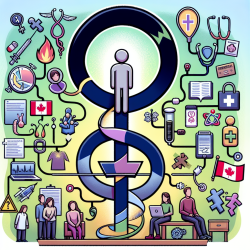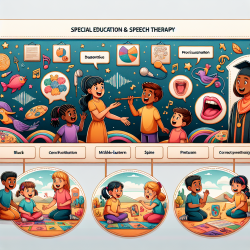Understanding Intersex Healthcare Transitions: A Lifespan Approach
In the realm of healthcare, transitions are pivotal moments that can significantly impact an individual's journey. For those with intersex traits, these transitions are even more critical, encompassing a lifetime of changes and challenges. A recent study titled "Lifespan healthcare transitions among individuals with intersex traits in Canada: a mixed-methods and qualitative study" sheds light on the complexities and gaps in healthcare transitions for individuals with intersex traits in Canada.
Key Findings from the Study
The study utilized a mixed-methods approach, including an environmental scan and engagement sessions, to explore the experiences of Canadians with intersex traits. Here are some of the key findings:
- Transition is a Lifespan Activity: Participants highlighted that transitions in healthcare are not limited to the pediatric-to-adult phase but occur throughout their lives. This necessitates continuous adaptation and finding new healthcare providers as they age.
- Building Personal Agency: The study emphasized the importance of personal agency, where individuals take ownership of their healthcare needs. This involves understanding their conditions, seeking information, and making informed decisions.
- Promotion of Well-being through Health Literacy: Well-being was closely linked to health literacy, where individuals need to find, understand, and use health information effectively. This is crucial for managing day-to-day health and making informed healthcare decisions.
Implications for Practitioners
As practitioners, understanding these transitions and the challenges faced by individuals with intersex traits is crucial. Here are some ways practitioners can enhance their skills and support their patients:
- Adopt a Lifespan Approach: Recognize that healthcare transitions occur throughout an individual's life and not just at the pediatric-to-adult phase. This requires ongoing support and adaptability in care.
- Foster Personal Agency: Encourage patients to take an active role in their healthcare by providing them with the necessary information and resources. This can empower them to make informed decisions about their health.
- Enhance Health Literacy: Provide clear, accessible, and reliable health information to patients. This can help them understand their conditions better and improve their overall well-being.
Encouraging Further Research
The study highlights significant gaps in resources and support for individuals with intersex traits in Canada. Practitioners are encouraged to engage in further research to develop better resources and guidelines that address these gaps. Collaborative efforts between healthcare providers, patients, and advocacy groups can lead to more inclusive and effective healthcare practices.
To read the original research paper, please follow this link: Lifespan healthcare transitions among individuals with intersex traits in Canada: a mixed-methods and qualitative study.










